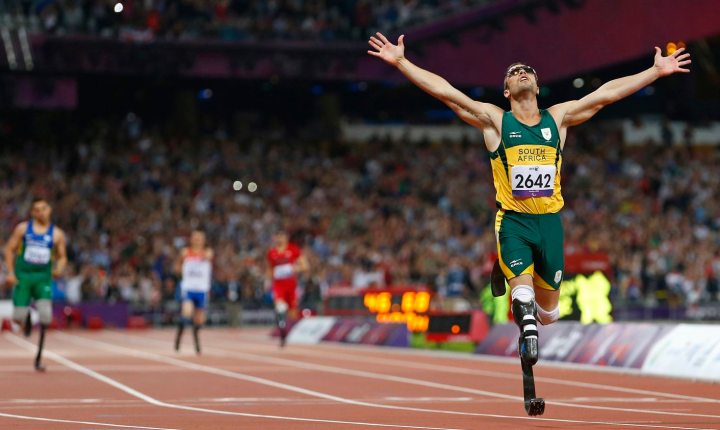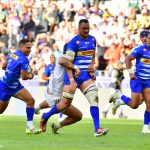Sport
Slam dunce: Nike’s bad run of backing bad guys

Nike has not had a good run of late, if you’ll forgive the phrasing. The sporting goods/lifestyle brand helped pioneer the athlete-as-shoe-shill. They, along with the rest of us, have learned that athletes – no matter how inspiring their backstories – often make very lousy people. RICHARD POPLAK delves into the shoebox of shame.
So here’s something you might have found out when you watched TV cameras follow the cops chasing a white Bronco down a highway on 17 June 1994. Athletes can be jerks. The OJ Simpson affair became a cultural touchstone, a worldwide media phenomenon that taught us the obvious: those whom we place on a pedestal are capable of falling and shattering, like bargain-store Greek statues. Just as cable news rose into the mainstream, OJ fell to meet it. He was not a “hero” in India. He was not “revered” in South Africa. Hell, he wasn’t anywhere near the biggest athlete in America at the time. But the OJ debacle, and the trial that followed, was certainly the biggest story in the world.
Watch: OJ on the Run – The Bronco Chase
Why that might be is less complicated than opinion column writers like to suggest: We enjoy watching gods fall. Always have, always will. In marketing speak, this means that sports stars can often be liabilities. No one knows this better than Nike, a company that has, in the past six months, had to run major damage control on two of its golden boys. The first, of course, is Lance Armstrong. The second is Oscar Pistorious. While the schadenfreuders have been schadenfreuding, it helps to spend a bit of time looking into how the phenomenon of the sports star as shoe-salesman developed, and how much a successful partnership along these lines is actually worth.
We’ll start with this fun fact: in 2012, Nike’s Air Jordan brand netted $2.5 billion worth of sales from retail stores worldwide. Most of the kids buying the shoes have never seen Jordan play, because they were not yet twinkles in their parents’ eyes when Jordan owned the NBA, but the Jordan brand has become synonymous with the basketball shoe. In 1984, when Nike took a $500,000 per year gamble on the nascent superstar, they sold $100 million worth of shoes at what was then the outrageous price of $65 a pair. (Phil Knight called the Air Jordan “the perfect combination of quality product, marketing and athlete endorsement.”) Inner city kids were killed for the Jordans they killed for; everyone wanted to “Be Like Mike”. Last year, Air Jordans represented 58% of all basketball shoes sold in the United States, and 77% of all kids’ basketball shoes. That number again? Two, point, five, BILLION.
Watch: Michael Jordan ‘Failure’ Nike Video
When a relationship like this one works, it works spectacularly. And Jordan, although not the first sportsman to sell Nike apparel (that would be the Romanian tennis player Ilie Nastase), set the bar high. Big Mike was a cakewalk: he didn’t punch bouncers in bar brawls, he didn’t get busted for juicing, and he didn’t kill his wife. (He is not, mind you, a nice man. Still, while he was certainly unfaithful, he was not unfaithful in public.) Michael Jordan was the athlete as focused businessman, rather than the athlete as entitled Son-of-Zeus.
But Jordan represented a huge gamble. There was no way that Nike could have foreseen how spectacularly his career would unfold, just as there was no way they could be certain that he wasn’t a murderous psychopath. Yes, that was a more innocent time, when athletic misdeeds took place behind closed doors. But to think for a second that Nike’s marketing department had illusions about the people they signed? Exhibit A: Ilie Nastase.
So, going forward, Nike hedged its bets. How can a company go wrong with a paternal American football coach, so beloved by his university that he basically runs the joint, a fixture in great American city that takes its heroes seriously? What could be amiss with a young, mixed-race golfer who is so under the thumb of his obviously decent father, and so unbelievably talented, that he ends up resetting the game itself? How about a cyclist who beats testicular cancer and certain death to win the most difficult race ever devised by man seven times? Or, say, a God-fearing double amputee who just wants to run with the legged folk?
Joe Paterno, Tiger Woods, Lance Armstrong and Oscar Pistorius – are you kidding me? Paterno’s entire legacy was trashed because he tacitly okayed the sexual abuse of boys on his watch. In every other way, he was a saint. Tiger Woods banged every Hooters waitron from here to Malaysia. In every other way, he was a gent. Armstrong redefined cheating. In every other way, he was a creep. Pistorius – well, an actual trial not conducted in the pages of a newspaper has yet to determine anything. But at the very least, the “Bullet in the Chamber” commercial, looks like an unfortunate move.
Now, we could be – and Lord, many have been –tempted to draw some Universal Conclusion from the above list. We could also throw in a bunch of other disgraced athletes, like Marion Jones, Kobe Bryant (Nike did not terminate its new contract with the star after rape allegations in 2006, but they were, no doubt, unhappy), Wayne Rooney (Nike didn’t drop the star after allegations that he cheated on his pregnant wife) and Michael Vick (Nike kept him after he was convicted of organising dog fights.)
The house Phil Knight built has been fairly consistent with condoning bad behavior, banking on the fact that fans have bad memories. If we’re to consider the above rap sheets with Nike’s reaction, we can say with confidence that cheating tends to be ignored – what happens in the bedroom or airplane bathroom or back seat of a Bentley stay in the aforementioned locales. Doping, it would appear, warrants the termination of a contract. (Bye-bye Lance and Marion.) Murdering girlfriends, I would guess, is also a no-no. And covering up the sexual assault of children, a la Joe Paterno at Penn State, is also streng verboten. Which is another way of saying that Nikes’ sense of justice is roughly in line with mainstream mores.
Nutella dropped Bryant for the rape allegations. Kellogg’s dropped Michael Phelps for hitting the bong. Corporate sponsor standards differ depending on the product. But is must be noted that Nike doesn’t only back psychopaths and perverts. What of Roger Federer, Rafael Nadal, Maria Sharapova, Cristiano Ronaldo, Didier Drogba, Landon Donovan? Rory McIlroy, Joe Mauer… I could do this all day. Lots of nice guys and gals. Plenty of assholes.
Sort of like life, when you come to think of it. Money and fame are catalysts for bad behavior. But just as often as not, rich and famous athletes live up to their responsibilities and make good on their promise. Sure, should Oscar Pistorious be convicted of some heinous crime, we’ll become a little more outraged, a little more cynical. The antidote? Catch some Federer highlights on YouTube, and watch McIlroy continue to be a class act at a coming Masters. Until they’re busted for child porn or genocide, we get to keep a sliver of hope for another day.
It’s not all bad. It’s just that the bad guys get more press. But they don’t sell more shoes. That number again? Two, point, five, BILLION. DM
Photo: Oscar Pistorius of South Africa celebrates winning the Men’s 400m T44 Final during the London 2012 Paralympic Games at the Olympic Stadium in London September 8, 2012. REUTERS/Andrew Winning

















 Become an Insider
Become an Insider